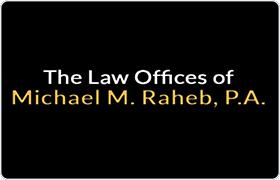Felda White Collar Crime Lawyer, Florida
Sponsored Law Firm
-
 x
x

Click For More Info:
-
Law Offices of Michael M. Raheb P.A.
2423 First St Fort Myers, FL 33901» view mapCriminal Defense Law Legal Problem? Call Us 24/7
At the Law Office of Michael M. Raheb, we strive to ensure each of our clients receives the individual attention and representation necessary to obtain an optimal outcome.
800-890-8981
Landon Miller
✓ VERIFIEDCriminal, DUI-DWI, Felony, Misdemeanor, White Collar Crime
Landon Miller has been practicing as a criminal defense attorney in Naples and Ft Myers for 18 years. His previous cases include but not limited to mu... (more)
FREE CONSULTATION
CONTACTRita Noelle Charlet
Antitrust, Constitutional Law, Traffic, White Collar Crime
Status: In Good Standing
FREE CONSULTATION
CONTACTRene Suarez
Litigation, White Collar Crime, Criminal, Wrongful Death
Status: In Good Standing Licensed: 23 Years
Ian F. Mann
Traffic, Whistleblower, White Collar Crime, DUI-DWI
Status: In Good Standing Licensed: 29 Years
John D. Mills
Divorce, White Collar Crime, DUI-DWI, Criminal, Personal Injury
Status: In Good Standing Licensed: 35 Years
Scott Thomas Moorey
White Collar Crime, DUI-DWI, Criminal
Status: In Good Standing Licensed: 27 Years
David Mccray Brown
Juvenile Law, Personal Injury, Mass Torts, DUI-DWI, White Collar Crime
Status: Deceased Licensed: 47 Years
Michael Francis Hornung
Traffic, White Collar Crime, Criminal, Personal Injury, Medical Malpractice
Status: In Good Standing
Brian Edward Dickerson
Litigation, Health Care Other, White Collar Crime, Life & Health
Status: In Good Standing Licensed: 28 Years
 Michael M. Raheb Fort Myers, FL
Michael M. Raheb Fort Myers, FL Practice AreasExpertise
Practice AreasExpertise

